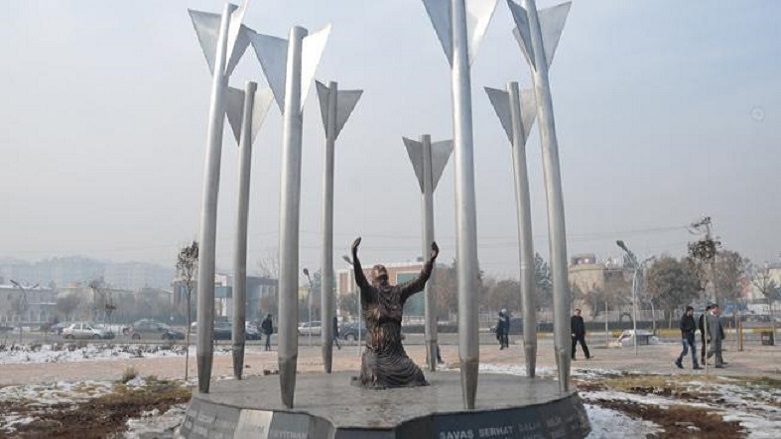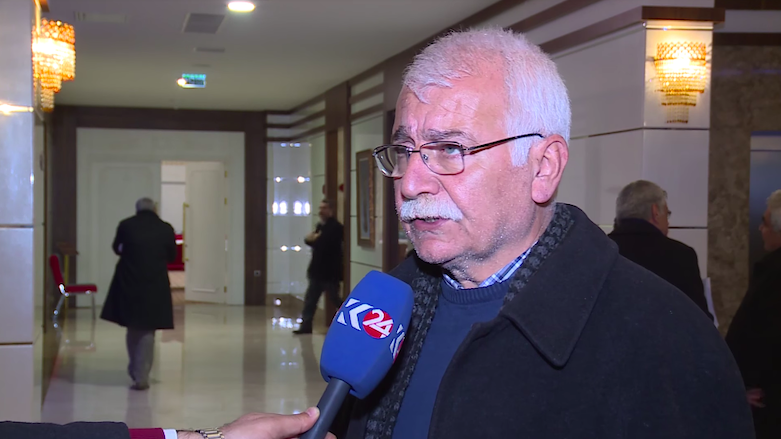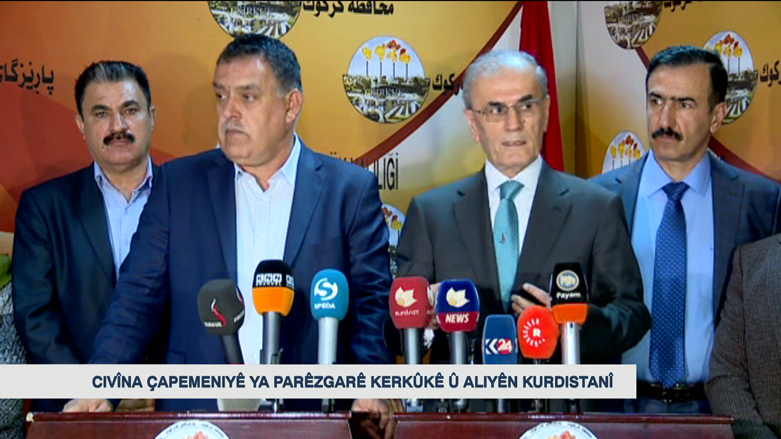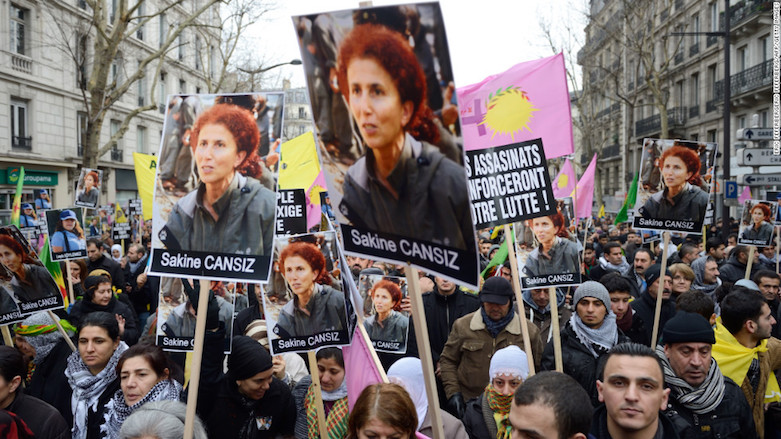Turkey trustee dismantles memorial statue for massacre victims

DIYARBAKIR, Turkey (Kurdistan24) – A Turkish-appointed trustee of the Kurdish city of Diyarbakir on Sunday removed a memorial statue in remembrance of 34 civilian victims of a massacre committed by Turkey on the border with the Kurdistan Region in December 2011.
The Roboski statue featuring a woman with hands raised toward the sky and surrounded by eight falling rockets sat on a base where each victim’s name was inscribed.
Police units arriving at the central Rojava Park before dawn removed the sculpture and smashed the plaques bearing names of the victims, reported the Kurdistan24 Diyarbakir bureau.

No statement or comment came from Turkish officials regarding the removal of the statue at the time of publishing this report.
Elected co-mayors of Diyarbakir Firat Anli and Gultan Kisanak, dismissed and imprisoned by Turkish authorities in October 2016, erected the statue alongside mothers and relatives of the victims on the second anniversary of the massacre.
Administration of the Ankara-appointed trustee of Diyarbakir Cumali Atilla also removed two sculptures of the ancient Assyrian deity Lamassu, depicted as a lion with a human head in front of the municipal building.
Formerly, the new administration changed the municipality’s signboard, eliminating the Kurdish-preferred name of the city, Amed.
A multilingual signboard on the central Sur district municipality containing Armenian and Assyrian languages was taken down a month ago.
Trustees had previously closed kindergartens and theater clubs serving in the Kurdish language.
On Dec. 28, 2011, Turkish warplanes bombed a group of 40 smugglers, most from the Roboski village of Sirnak Province, killing 34 civilians, 17 of them teenagers.
A government decree on the last day of 2016 targeting nongovernmental organizations ordered the closure of Roboski-Der, an association set up in Sirnak to seek justice for the victims.
Turkish leaders defended their air force, claiming victims were mistaken for a unit of the Kurdistan Workers’ Party (PKK).
A then-Prime Minister Recep Tayyip Erdogan decried criticism of his government, saying it was impossible “to know Ahmad from Mehmed from that high.”
Editing by Karzan Sulaivany



